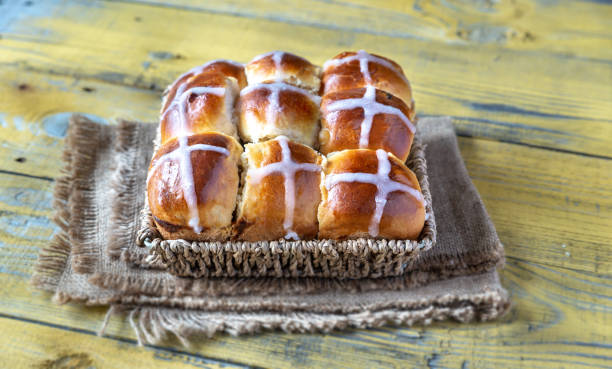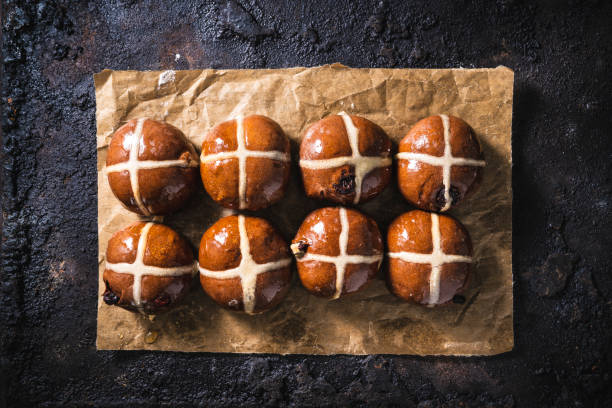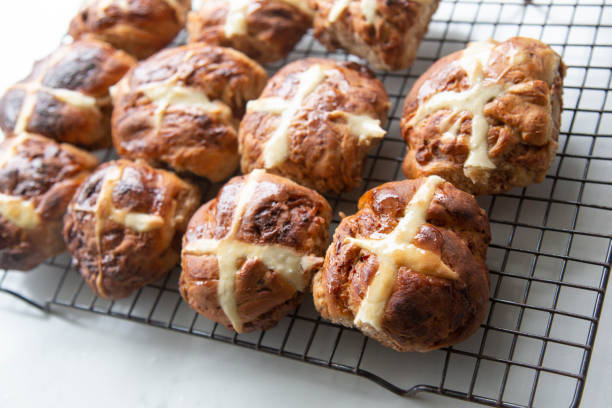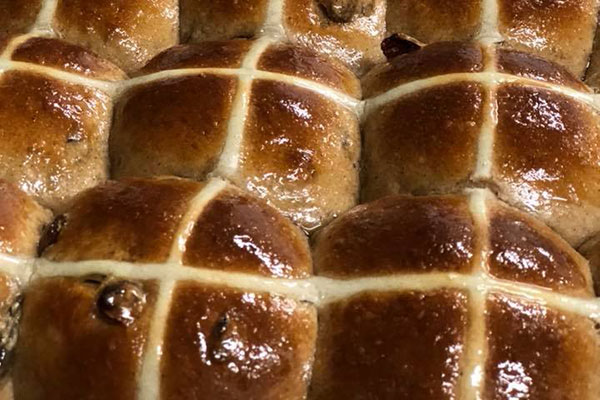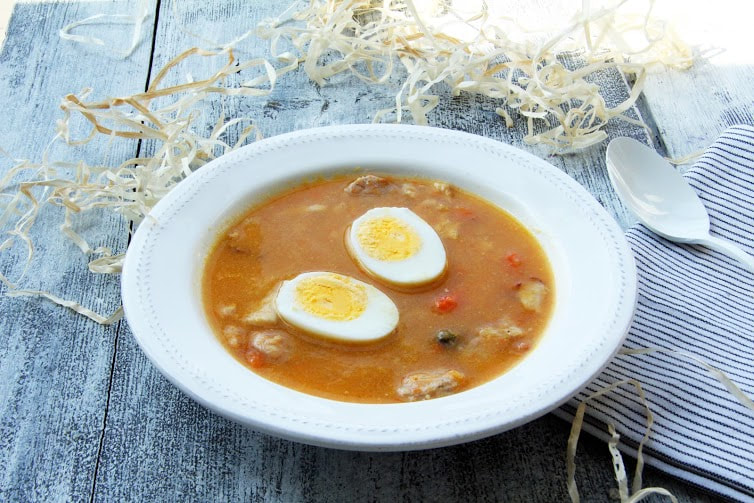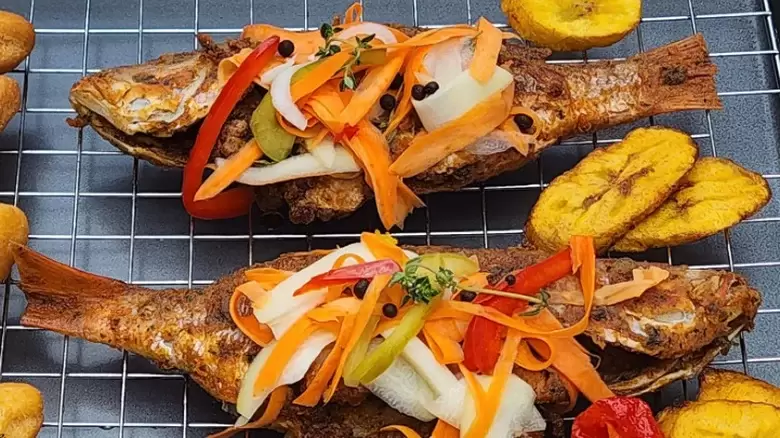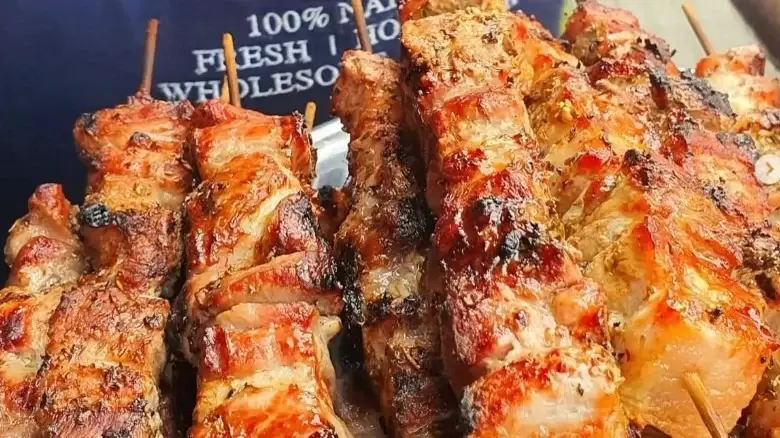Take your pick!
"Hot cross buns, hot cross buns!
One ha'penny, two ha'penny, hot cross buns
If you have no daughters, give them to your sons
One ha'penny, two ha'penny, hot cross buns.
This English nursery rhyme of 1798 is believed to have been a catch-call for street vendors selling buns around Easter time. Cross buns are also very popular at Easter in former British colonies. Made with flour, sugar yeast, raisons, butter, cinamon, essence etc. Baked in oven.
"Hot cross buns, hot cross buns!
One ha'penny, two ha'penny, hot cross buns
If you have no daughters, give them to your sons
One ha'penny, two ha'penny, hot cross buns.
This English nursery rhyme of 1798 is believed to have been a catch-call for street vendors selling buns around Easter time. Cross buns are also very popular at Easter in former British colonies. Made with flour, sugar yeast, raisons, butter, cinamon, essence etc. Baked in oven.
Zurek is a sour rye soup traditionally served in Poland at Easter time. Made with spicy white Polish sausage, smoked meat, potatoes, spices, sour rye starter, carrots , and basil - served with boiled eggs.
Every Easter, Jamaicans whip up a traditional fish dish known as Escovitch. The name of the dish is similar to a Spanish dish, Escabeche, but the Jamaican version adds lime juice, heat from fire Scotch Bonnet chilli, and fried bell peppers, carrots, and onions.
Souvla is the main dish typically served on Greek Easter Sunday, a full day of feasting for families. This marinated meat skewer is traditionally made with lamb, though pork or chicken can also be used. The meat is simply seasoned with salt, pepper , and oregano.

